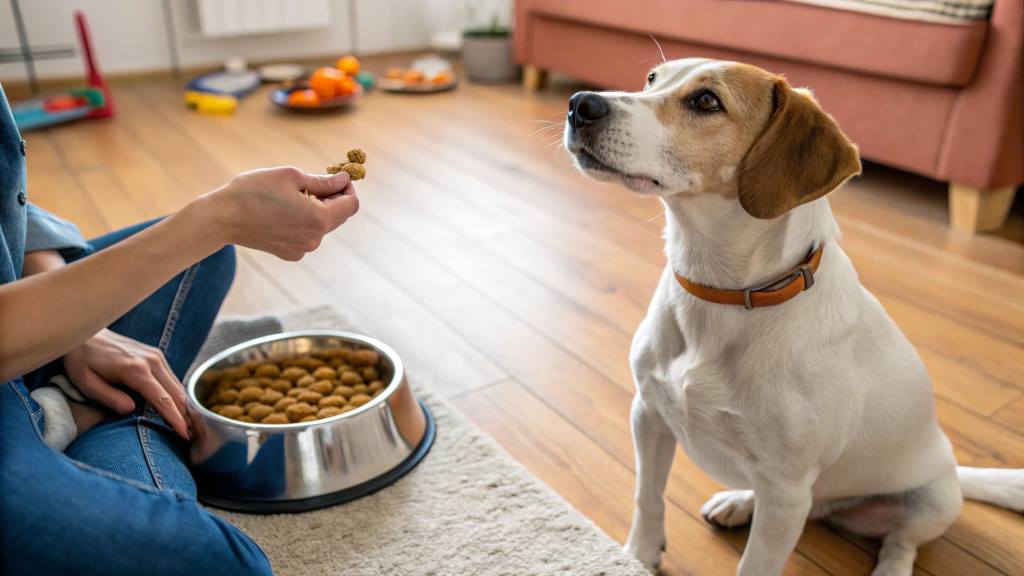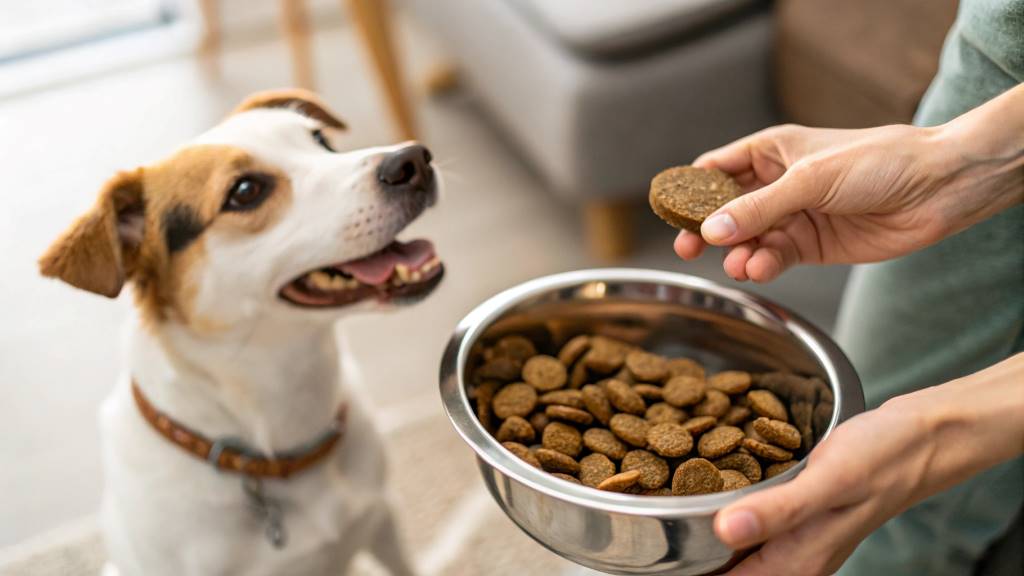
Dogs can be picky eaters, but when your furry friend refuses meals while eagerly accepting treats, it raises concerns. Could it be a behavioral issue, a health problem, or simply a case of spoiled taste buds? Understanding why is my dog not eating his food but will eat treats but still munching on treats is crucial to maintaining his well-being.
Table of Contents
TogglePossible Reasons Your Dog Won’t Eat His Food But Will Eat Treats
Picky Eating Habits
Dogs can develop a preference for high-reward foods. If you regularly offer treats or human food, your dog may hold out for something tastier rather than eating his usual kibble.
Dental Problems
Oral pain from tooth decay, gum disease, or broken teeth can make chewing dry kibble uncomfortable. However, softer treats may be easier to eat, explaining the selective appetite.
Digestive Issues
Stomach upset, food intolerance, or underlying gastrointestinal conditions can cause a loss of appetite. Treats, being smaller and more flavorful, might be easier to tolerate than a full meal.
Stress or Anxiety
Environmental changes, a new pet, travel, or loud noises can lead to stress, making your dog avoid food. However, treats might still be tempting enough to eat due to their high palatability. If you have other pets, such as cats, you might notice similar behavioral changes due to stress or allergies. In such cases, natural remedies for cats with allergies can help alleviate discomfort and create a more harmonious environment for all your pets.
Food Spoilage or Boredom
Dogs can detect spoiled food that we might not notice. Also, if your dog has been eating the same kibble for years, he might simply be bored and want variety.
Medical Conditions
Liver or kidney disease, infections, or metabolic disorders can reduce appetite. Treats might still be appealing because they trigger pleasure responses, making them easier to eat despite illness.
How to Get Your Dog to Eat Regular Food Again
Stop Overfeeding Treats
Limit treats to 10% of your dog’s daily calorie intake. This prevents your dog from developing an unhealthy preference for high-reward snacks.
Check for Spoiled Food
Inspect kibble for changes in smell, color, or texture. Store dry food in airtight containers to maintain freshness.
Switch to a More Palatable Diet
Try mixing wet food with dry kibble or adding low-sodium broth to enhance flavor. Rotating between different protein sources can also maintain interest.
Address Dental Health Issues
If you suspect dental problems, visit a vet for an oral checkup. Brushing your dog’s teeth and providing dental chews can prevent future issues.
Rule Out Medical Causes
If food refusal persists beyond 24-48 hours, consult a veterinarian. Blood tests and physical exams can rule out serious health concerns.
Maintain a Feeding Schedule
Offer food at consistent times, and remove uneaten food after 20 minutes. This teaches your dog that meals won’t always be available on demand.
Create a Stress-Free Eating Environment
Feed your dog in a quiet area away from distractions. Using puzzle feeders can also make mealtime more engaging.
When to Worry About Your Dog Not Eating
- If your dog refuses food for more than 48 hours
- If weight loss, vomiting, or diarrhea accompany appetite loss
- If there are signs of pain while chewing or swallowing
- If lethargy, excessive drooling, or changes in thirst are noticeable
If any of these symptoms appear, seek veterinary help immediately. Explore how using organs in pet food helps the environment.
Frequently Asked Questions
Can I feed my dog only treats if he refuses food?
No. Treats lack essential nutrients that your dog needs for long-term health. Encourage balanced meals instead.
What human foods can I safely mix with my dog’s food?
Plain chicken, pumpkin, rice, or unsalted broth can enhance meals without causing harm. Avoid toxic foods like onions, garlic, and chocolate.
How long should I wait before taking my dog to the vet?
If your dog refuses food for more than 48 hours or shows other concerning symptoms, visit a vet.
Is it okay to switch dog foods frequently?
Gradual transitions between foods are recommended. Sudden changes may cause digestive upset.
Could my dog’s age affect his appetite?
Yes. Senior dogs may eat less due to lower activity levels, dental issues, or medical conditions.
Final Thoughts
If your dog is refusing his food but still eating treats, it’s important to assess whether the issue is behavioral or medical. By eliminating excessive treats, ensuring fresh food, and addressing potential health concerns, you can encourage healthy eating habits. If the problem persists, a vet visit is essential to rule out any underlying conditions.
Why is my dog not eating his food but will eat treats? Share your experience in the comments below!

